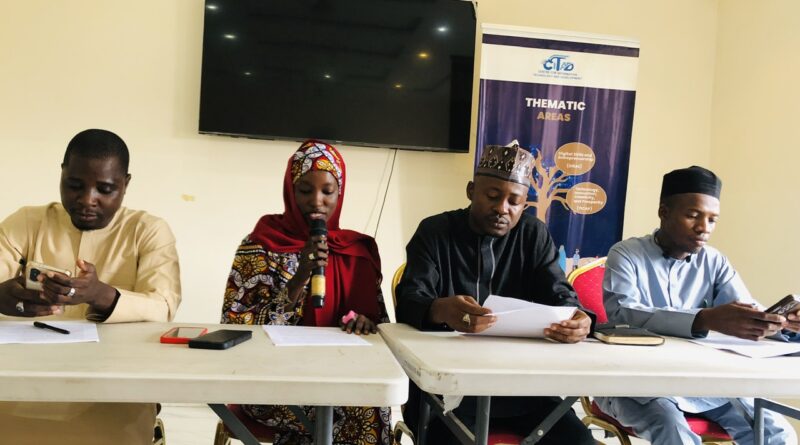CITAD Urges Gender, Climate Justice in Nigeria’s Digital Policies
By Mustapha Salisu
The Centre for Information Technology and Development (CITAD) has called for urgent reforms in Nigeria’s digital transformation agenda to integrate gender equality and climate justice.
Speaking at a press conference in CITAD’s Kano Office on Monday, Fatima Babakura, Project Lead for the “Greening and Feminist Centering of the National Digital Transformation Agenda”, said the initiative, supported by the Association for Progressive Communications (APC) seeks to make Nigeria’s digital economy greener, fairer, and more inclusive.
She explained that Nigeria’s digital economy is projected to contribute 10 percent to GDP by 2025. However, the country already loses an estimated 2 percent of GDP annually to climate-related challenges. “At the same time, gender gaps persist, with women 12.5 percent less likely than men to access the internet and representing only 22 percent of jobs in STEM fields” She said.
“These are the challenges the project aims to raise awareness on. Women and girls face the brunt of climate change, food insecurity, and poverty but remain excluded from shaping digital and environmental policies” Babakura said.
She added that empowering women is both a moral duty and an economic strategy, citing research that shows women’s empowerment could increase agricultural productivity by up to 25 percent.
Last month, CITAD hosted a webinar titled “Examining Nigeria’s Gender and Climate Justice Spectrum: Exploring the Gaps in our Digital Policy Networking.” The event brought together policymakers, activists, and community leaders, who recommended embedding gender-sensitive and climate-conscious strategies in Nigeria’s National Digital Economy Policy (2020–2030).
Babakura stressed that the project would continue to engage stakeholders across the country through advocacy and dialogue to close the gender digital divide and promote climate-resilient digital innovation.
“We believe women must not only benefit from digital transformation but also take leadership roles in shaping policies, innovations, and solutions,” she said.
Babakura concluded the briefing by urging policymakers to review existing digital policies with gender and environmental concerns in mind, warning that the negative environmental impacts of technology must not be underestimated.





